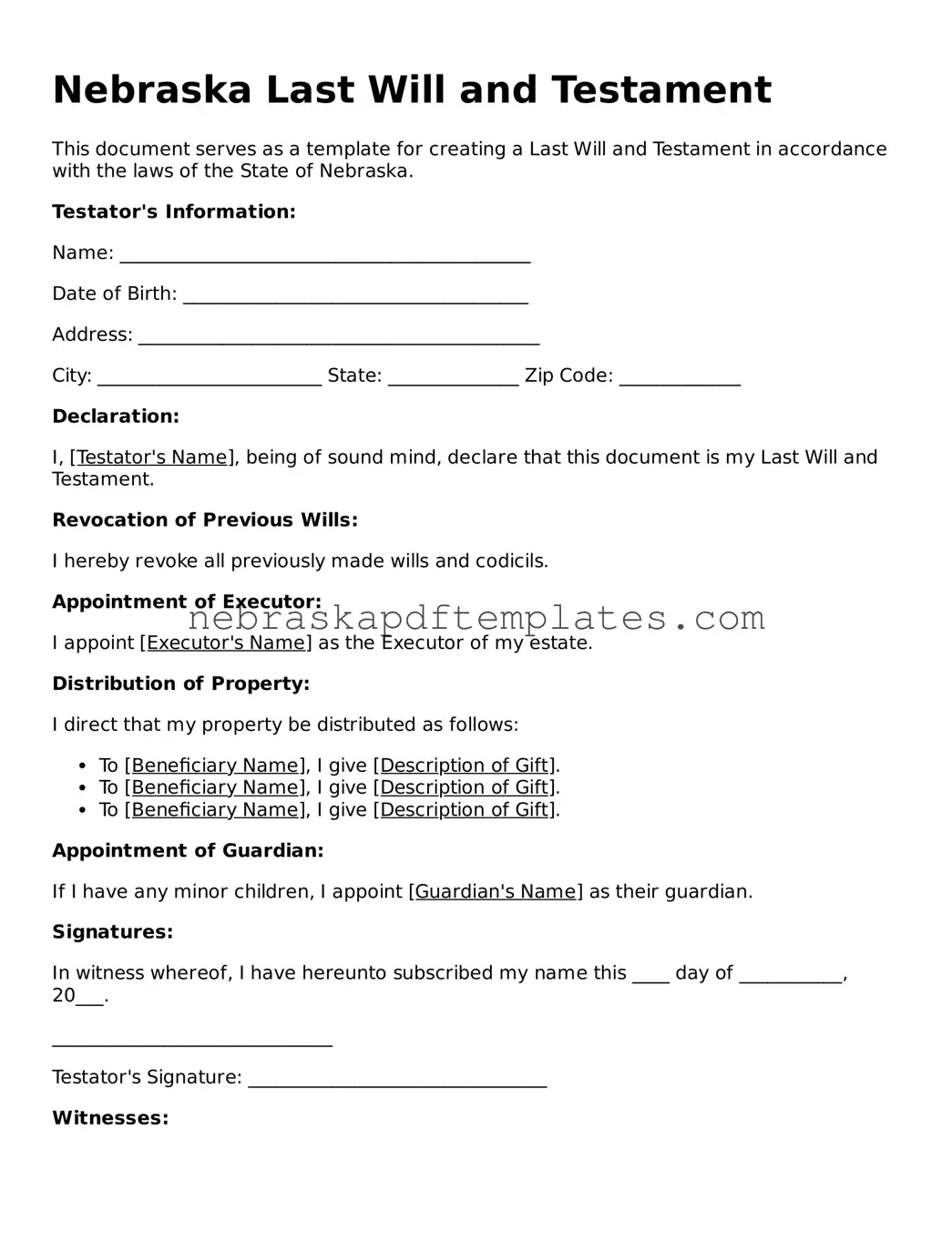Attorney-Verified Last Will and Testament Document for Nebraska
A Nebraska Last Will and Testament form is a legal document that outlines how a person's assets and affairs should be managed after their death. This form ensures that your wishes are respected and provides clarity for your loved ones during a difficult time. To begin the process of securing your legacy, consider filling out the form by clicking the button below.
Access Editor Here

Attorney-Verified Last Will and Testament Document for Nebraska
Access Editor Here
Finish your form now
Finalize Last Will and Testament online — edit, save, and download effortlessly.
Access Editor Here
or
➤ Last Will and Testament
